"The Union"
Elton John's masterful collaboration with Leon Russell
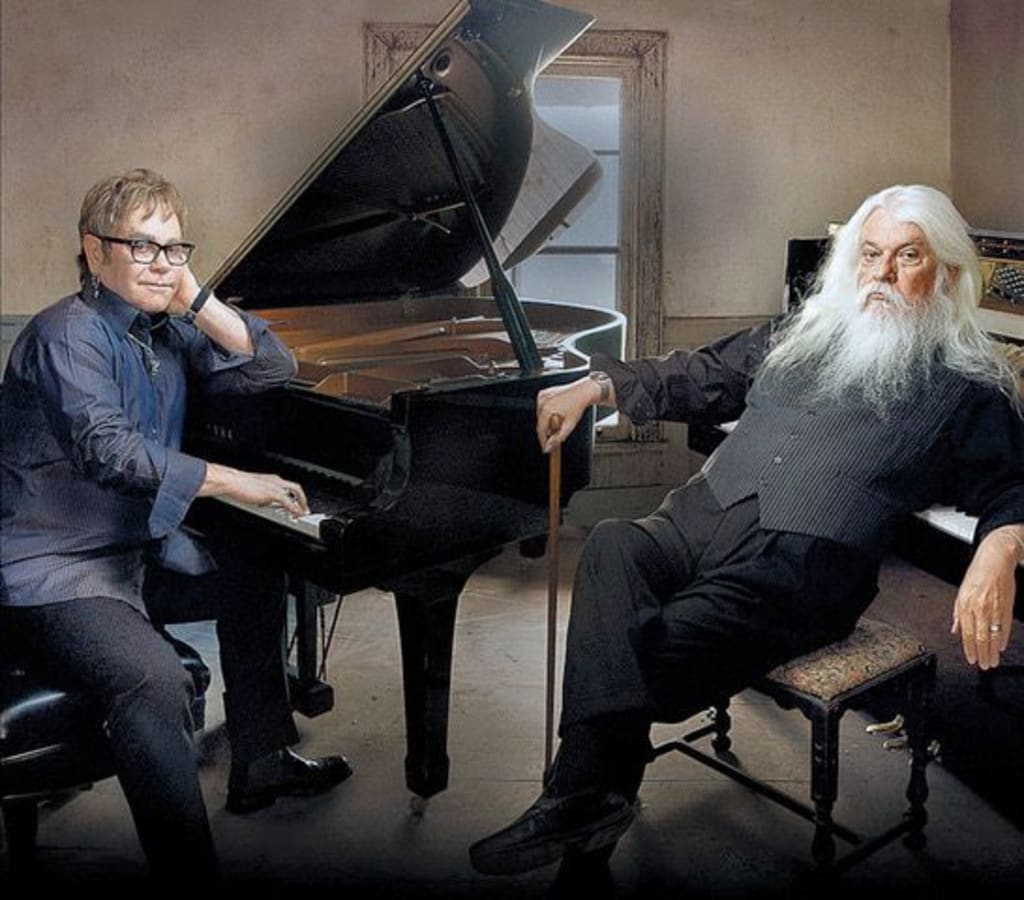
In 2008, on the debut episode of Spectacle!, a music and talk show hosted by the bespectacled and by now highly respected Elvis Costello, Elton John spoke highly of three of his primary piano-playing influences: Laura Nyro, David Ackles, and Leon Russell. At that time, only Leon Russell was still alive.
That Elton was on the debut episode of Spectacle! was unsurprising, not only because of his massive celebrity, but because he produced the show with his then-partner, now husband David Furnish. The Nyro-Ackles-Russell discussion led to Furnish, who was not familiar with any of these musicians, uploading much of their work onto his I-pod. While vacationing in Africa, Elton was listening to David's I-pod and when the Leon Russell song "Back to the Island" came on, Elton started to weep. When David asked Elton what was the matter, John replied “This music brings me back to the most magical time in my life, it’s not fair that this man's music has been forgotten".
Claude Russell Bridges, better known as Leon Russell, originally from Tulsa, Oklahoma, rose to prominence as a pianist in the now-legendary group of Los Angeles session musicians known as "The Wrecking Crew", who helped Phil Spector create his "Wall of Sound" on such smash hits as the Ronnette's "Be My Baby" and The Crystals' "He's a Rebel" as well as the still-perennial annual favorite "A Christmas Gift to You from Phil Spector." As part of this studio session assemblage Russell played on numerous Beach Boys songs, including "Fun Fun Fun", "Help Me Rhonda" "Kiss Me Baby," "California Girls" and a plethora of other familiar hits of the 60s, including the Byrds' electrified cover of Bob Dylan's "Mr. Tambourine Man." He even played for artists as famous and diverse as Frank Sinatra and the Stones. So Elton was not correct that the man's music had been forgotten, only that much of his most familiar music did not feature his name.
In the 70s, Leon embarked on a fairly successful solo career with hits like "Tightrope," "Hummingbird" and the aforementioned "Back to the Island." He even did a duo album with Willie Nelson. He began the decade as musical director and pianist for Joe Cocker's Mad Dogs and Englishmen Tour, during which his eponymous debut was released, featuring the song "A Song For You", which has been recently added to the list of Grammy Hall of Fame songs; the song has been covered by many artists, including, Ray Charles, Donny Hathaway, and the Carpenters, who made it the title track of their 1972 album. He would write other huge hits performed by other artists, including "Delta Lady" by Joe Cocker, which led to Leon's involvement in the Mad Dogs tour; "This Masquerade," an unlikely hit for long-time jazz guitarist George Benson: and "Superstar, " a monster MOR hit by the Carpenters credited to Russell and Delaney and Bonnie Bramlett, but sanitized from the original, then titled "Groupie."
"Groupie (Superstar)" debuted as a B-side to a song from the album "Delaney and Bonnie and Friends with Eric Clapton," and it was supposedly based on comments made by Rita Coolidge about the groupies surrounding Clapton. Coolidge, supposedly the inspiration for Russell's "Delta Lady," would sing the song during the Mad Dogs tour. Russell would go on to work with Clapton on his solo debut, playing piano and writing "Blues Power" with Clapton.
After all this madness in 1970, by the end of the year he was in attendance the night Elton made his debut at the Troubadour in Los Angeles and asked Elton to open for him on a short tour. Russell would have one more very high-profile gig in 1971 as arranger and featured performer at George Harrison's Concert for Bangladesh, where he shared the stage with George, Ringo, Dylan and Clapton. However, by the late 2000s Leon had become something of an obscurity, living in Oklahoma releasing his albums through the internet.
After his Spectacle appearance and African trip with David in 2008, Elton decided to call Leon, and asked him to have dinner with him to catch up after 30 years. By the end of that visit, he had offered Leon much more than a dinner. Next Elton contacted the hottest record producer of the day, T-Bone Burnett and asked if he would consider producing a record with him and Leon. T-Bone responded affirmatively
Elton, Leon and T-Bone convened at the Village in Los Angeles to begin recording in November of 2009. The album features many of T-Bone Burnett's usual stable of musicians instead of the Elton John Band, such as Keefus Ciancia on keyboards and Jay Bellerose on drums and percussion,(Bellerose has been described by Russell as the best rock drummer he ever worked with which is high praise considering Leon worked with legendary drummer Hal Blaine in the "Wrecking Crew") and such musical stalwarts as Don Was, Jim Keltner, Robert Randolph and Booker T. Jones. For the first time in forever, Davey Johnstone played no role, with Marc Ribot and Doyle Bramhall II taking the six-string duties.
There were also a decent assortment of Rock and Roll Hall of Famers taking part: Brian Wilson, Neil Young and Rose Stone of the Family Stone. A smooth recording experience it was not, however. In fact Russell missed much of the recording sessions after being rushed to the hospital for emergency brain surgery. He recovered sufficiently to help put the finishing touches on what would be one of Elton's strongest wall to wall albums, even though it lacked what in the artists' heyday were the obligatory hits.
The album opens with a Leon Russell composition called "If It Wasn't For Bad," a strong and typically gospel based meditation by Leon that is sung and performed solidly, giving notice that this was to be a pro's album. A notable feature of the song are strong background vocals by Judith Hill, Tata Vega, Rose Stone and Jean Witherspoon.
Next is the John/Bernie Taupin composition "Eight Hundred Dollar Shoes," a solid Elton ballad with a typically cryptic Taupin lyric that seems at points to refer to the power of the young Leon and his return to the place where he, Elton and Bernie first met.
"Hey Ahab", also written by Elton and Bernie, would become a staple in Elton's live setlists for a few years after the album's release. An uptempo rocker, though certainly not electrified, the background vocals were arranged and conducted by Bill Maxwell and highlights Jean Witherspoon's soulful soprano.
A third voice enters the mix for "Gone to Shiloh," another John/Taupin masterpiece, which features a Southerner (Leon), a Canadian (Neil Young) and a Brit (Elton) trading verses on the story of a Union soldier leaving his farm for the experience of the Battle of Shiloh, Tennessee during the American Civil War. The songs seems to portend the soldier's death and is very haunting and atmospheric.
"Hearts Have Turned To Stone" is another Russell composition that makes liberal use of female backing vocals, as well as horns, featuring Darrel Leonard on trumpet, and Jim Thompson, Joseph Sublett, and Thomas Peterson on saxophones. Leon borrows the old trick of using an uptempo beat to disguise a very, very bleak lyric.
Next is Jimmie Rodger's Dream, with Burnett joining the John-Taupin writing team for a track. The song, a tribute to the late country singer and yodeler, is notable for its clip clop percussion and pedal steel guitar by Russ Pahl.
"There's No Tomorrow" is written by Elton, Leon, T-Bone and James Timothy Shaw and is once again a showpiece for Bill Maxwell's team of background vocalists. It starts out like a song from Tumbleweed Connection, but when Leon takes a verse it takes on a life of its own. It also features a strong pedal steel solo from guest Robert Randolph of the Family Band.
"Monkey Suit" is probably the best rocker from the John/Taupin team in years and would not have been out of place on any of the classic era albums. It features Darrel Leonard's horns and Bill Maxwell's background vocalists, and has Bernie turning his eyes to gaudy fashion for the second time on the album. The song features only acoustic guitar from Ribot, but is propelled by the drums and percussion from Bellerose and Keltner.
"The Best Part of the Day" is another great song by Elton and Bernie that features prominent B-3 organ by Booker T. Jones and a devilish lyric about a singer tackling Dylan's "I Shall Be Released ."
"A Dream Come True" is written by Elton and Leon and probably describes their feelings about working on this collaborative project. Rose Stone of Sly & The Family Stone fame adds tambourine and background vocals to this track, while production engineers Jason Wormer and Kyle Ford add hand claps. Judith Hill, Tata Vega and Jean Witherspoon also add backing vocals.
"I Should Have Sent Roses" is a regretful love song written by Leon with Bernie Taupin and features famous record producer Don Was on bass, Doyle Bramhall II on guitar, and again features horn arrangements by Darrell Leonard.
"When Love is Dying" is another John-Taupin collaboration, but is marked by masterful vocal arrangements and backing vocals from former Beach Boy leader Brian Wilson. Wilson's gift for backing vocal arrangements is in full evidence here and strongly heightens the emotion of the song, which lyrically is a full-on partner in regret to the previous song, even reprising the concept of never sending roses.
John and Taupin then offer the somewhat less somber "My Kind Of Hell," a playful lyric with a nice percussive feel complementing Leonard's horn arrangements and Bill Maxwell's backing vocalists. The track was initially only found on the deluxe CD and iTunes download,
The deluxe-edition only track "Mandalay Again" is another John/Taupin composition on which Leon and Elton trade the lead and harmonize on a meditation about lost time.
"Never Too Old (To Hold Somebody) written by Elton and Bernie might be the album's standout love song, but it's clearly addressed to Leon as message that it's never too late to revive his career and that he shouldn't "fold up the tent."
"In The Hands Of Angels" is an emotional ballad written by Leon and describes his gratitude to Elton for making him "feel like a king." He repeated that phrase the next year when he was inducted by Elton into the Rock and Roll Hall of Fame, an overdue honor that was probably accorded due to the increased attention this album gave Russell.
In fact, The Union was Elton's highest charting album since 1976's Blue Moves and Leon's highest charting since 1972's Carney. For the first time in a while for Elton, the critics were universally kind; in fact The Union was named by Rolling Stone as the 3rd best album of 2010.
On a personal note, on Elton John's 64th birthday on March 25, 2011, I attended his concert at the Wells Fargo Center in Philadelphia. The setlist was a fairly typical Elton hits rundown, closely resembling the Madison Square Garden Show captured on Thanksgiving night 1974 as the "American" half of the Here and There live disc. Midway through Elton announced a surprise, saying that "since it's my birthday" he had invited Leon to accompany him (a bit of a canard since Leon was making the same guest appearance in all the East Coast venues at the time.)
Russell joined him for 8 songs from The Union, conveniently most of the backing singers from the album, including Rose Stone, were touring with Elton at the time. While much of the crowd didn't fully appreciate the unfamiliar songs and the rock pioneer they were seeing on stage, Elton was clearly energized and it seemed to give a boost to the proceedings. Not long after, I watched an interview with Elton where he spoke with regret that he had to limit playing "the new stuff." So his 64th birthday present to himself was a chance not only to play with his hero, but to play some songs written in this century.
In 2014, Leon Russell would release one last solo album, Life Journey. a jazzy compilation of mostly standards. He would pass away on November 13, 2016, at age 74. John posted the following in Facebook: “My darling Leon Russell passed away last night. He was a mentor, inspiration and so kind to me. Thank God we caught up with each other and made ‘The Union’. He got his reputation back and felt fulfilled. I loved him and always will.”
About the Creator
Sean Callaghan
Neurodivergent, Writer, Drummer, Singer, Percussionist, Star Wars and Disney Devotee.

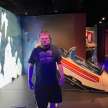
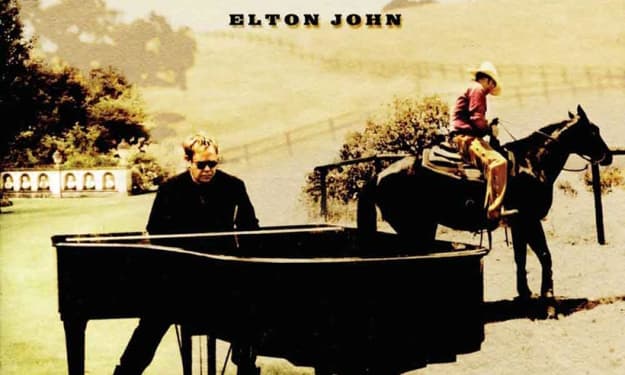

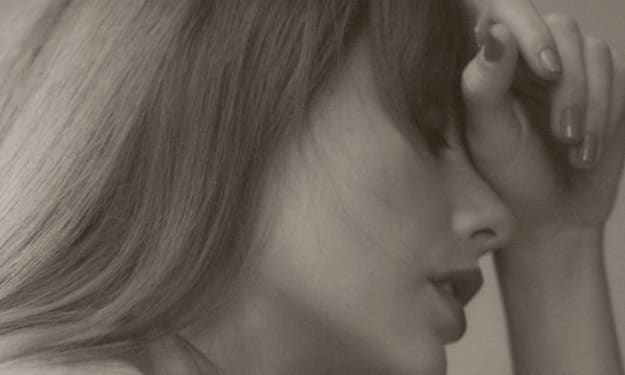
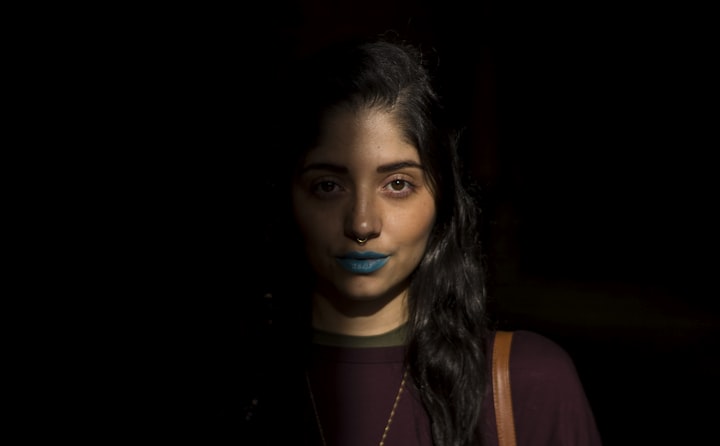
Comments
There are no comments for this story
Be the first to respond and start the conversation.